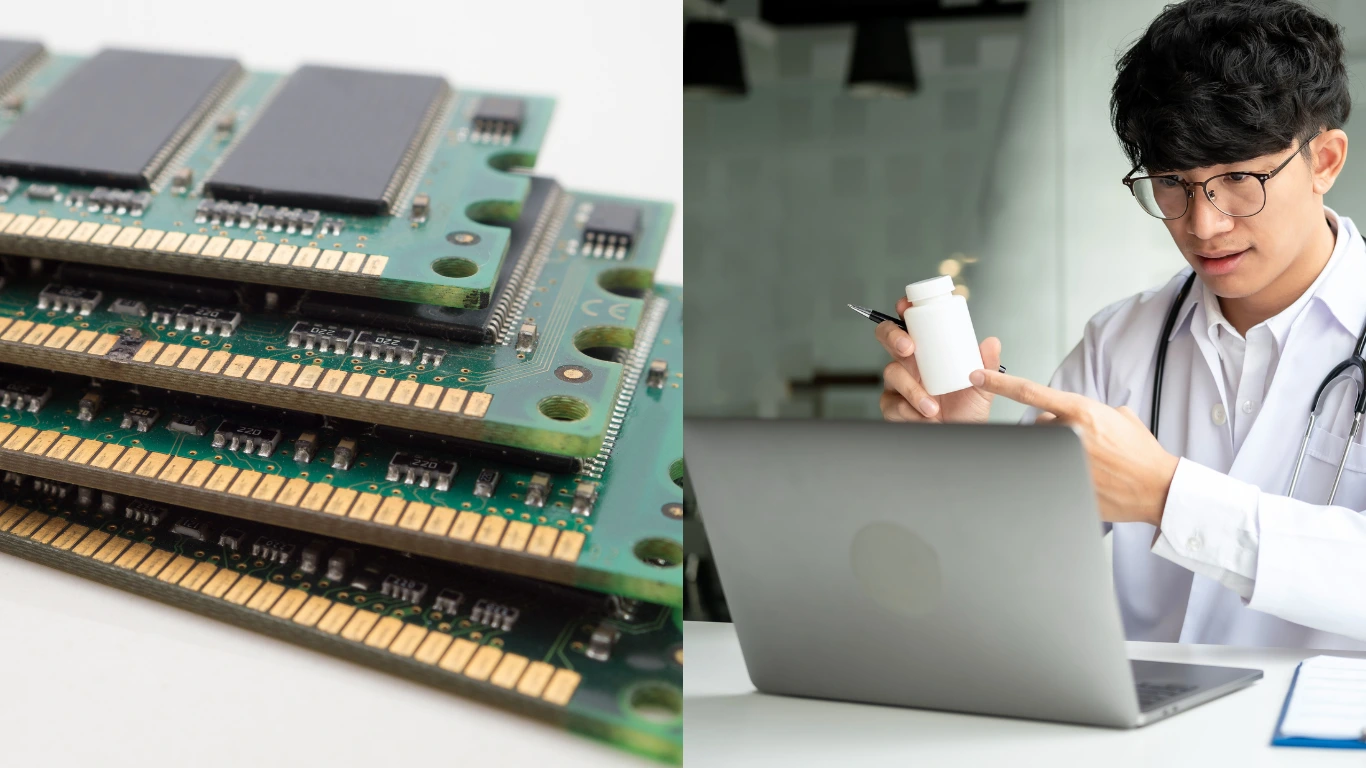In the modern landscape of medical education, technology has become an indispensable tool for students, and the question that often arises is, ‘Is 8GB RAM enough for med school?’ From extensive research to multimedia presentations and real-time collaboration, the demands placed on a laptop are ever-increasing. A critical component of a laptop’s performance is its RAM (Random Access Memory).
In this comprehensive exploration, we’ll delve into the intricacies of RAM requirements for medical students, addressing the key question, ‘Is 8GB RAM enough for med school?’ We’ll examine scenarios where 8GB might suffice, and we’ll also discuss the scenarios in which upgrading to 16GB becomes a smart and beneficial choice. By the end of this article, you’ll have a clear understanding of the RAM needs essential for a successful experience in medical education.”
RAM’s Role in Medical School
RAM, or random access memory, is your laptop’s short-term memory. It stores data temporarily for quick access by the CPU, allowing for fast processing. In the context of medical school, RAM plays a crucial role in ensuring smooth operations across various daily activities:
- Reviewing course materials
- Running learning tools
- Writing papers and creating presentations
- Participating in web conferences
- Managing references
- Collaborating in real time
- Streaming lectures
Why 8GB RAM May Suffice
Several factors suggest that 8GB RAM may meet the needs of many medical students:
General Guidelines
8GB RAM aligns with the standard recommendation for most mainstream laptop users today, making it a solid choice for basic multitasking.
Improved Efficiency
Modern operating systems and software are optimized to make better use of available RAM, maximizing efficiency.
Cloud Storage
Storing files in the cloud instead of locally reduces the RAM required for storage and retrieval.
Newer Processors
The latest processors, such as Intel’s 12th Gen and AMD’s Ryzen 6000 chips, help reduce RAM bottlenecks.
Avoid Overloading
Practicing good computing habits, such as closing unnecessary apps and browser tabs, can help you make the most of 8GB of RAM.
When to Consider 16GB RAM
However, for medical students dealing with rigorous course loads and demanding multitasking, upgrading to 16GB RAM offers notable advantages:
Extreme Multitasking
16GB RAM allows you to juggle numerous browser tabs, textbooks, references, practice quiz apps, video calls, and more simultaneously.
Future-Proofing
Investing in 16GB RAM ensures smoother performance throughout your entire medical school journey as application demands evolve over time.
Heavy Media Use
Tasks like viewing high-resolution 3D anatomy visualizations and streaming HD lecture videos benefit from the additional RAM provided by 16GB.
Large Local Storage
Storing content locally instead of relying on the cloud can increase RAM demands, making 16GB a wise choice.
Gaming and Media
If you have hobbies like gaming or video editing, 16GB RAM provides ample overhead for these resource-intensive activities.
Virtual Machines
Some specialized medical software may require virtual machines with dedicated RAM, making 16GB RAM essential for smooth operation.
RAM Recommendations by Laptop Type
To make an informed RAM decision, consider the following recommendations based on your laptop type:
Mainstream Windows Laptops
While 8GB RAM is a reasonable starting point, 16GB offers more flexibility for intensive medical school use.
High-End Windows Laptops
For premium laptops aimed at maximizing performance, 16GB RAM should be the baseline.
MacBooks
For MacBook Air and Pro models, it’s advisable to opt for at least 16GB RAM since RAM upgrades aren’t possible later.
Chromebooks
ChromeOS, with its web-based apps and minimal local storage needs, generally functions well with 4-8GB RAM.
Expert Tips for Medical Students
Navigating RAM needs effectively requires careful consideration and expert advice. To help you make an informed decision about the right amount of RAM for your medical school journey, consider the following steps and guidelines:
- First and foremost, review your current course schedules and software requirements to anticipate RAM needs before purchasing a laptop.
- Additionally, opt for 16GB RAM on premium laptops or if you plan to use your laptop throughout your entire medical school journey.
- Furthermore, if you’re considering an affordable laptop, check if it allows RAM upgrades as this can be a cost-effective way to boost performance.
- Moreover, develop good computing habits, such as closing unused tabs and apps, to avoid overloading your RAM.
- Equally important, use cloud storage wisely to minimize local storage demands on your RAM.
- Lastly, consult with current medical students to gain insights into real-world RAM experiences at your prospective schools.
By carefully assessing your usage needs and your laptop’s capabilities, you can make an informed decision about the right amount of RAM for your medical school journey. While 8GB provides a solid starting point, 16GB delivers optimal flexibility and future-proofing to meet the intense computing demands of medical education. Weigh the pros, cons, and expert guidance to make the best RAM decision for your needs.
